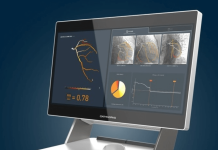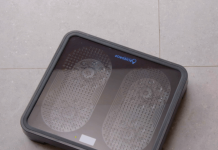CMR Surgical is making the Versius® Trainer simulator available on its virtual reality headsets through a new product, Versius Trainer in VR (VTVR).
VTVR will give surgeons the option of accessing simulator exercises using a VR headset and hand controllers. This means surgeons can become familiar with the Versius interface, anywhere at anytime.
In 2022, Versius began offering VR training as part of its surgical team training pathway; giving surgical teams increased flexibility to practice their skills setting up Versius. This latest update sees simulator exercises from the Versius Trainer added to the headsets via the VTVR platform.
Mark Slack, Chief Medical Officer and Co-Founder of CMR Surgical, said: “We’re really proud of our leading metrics-based training pathway for Versius. But we want to make it as efficient and convenient as possible for surgeons and their teams”.
“I’m delighted that the Versius Trainer and its simulator exercises can be accessed using our VR headsets. This means a surgeon can do the training at a time and place convenient to them. We expect it will lead to a shorter learning curve and help surgeons to reach proficiency more quickly.”
RELATED: Relievant Medsystems launches new Intracept instruments for low back pain
Lukacs Veres, Consultant Thoracic Surgeon at University Hospital Southampton NHS Foundation Trust, one of the first to use VTVR, said: “This is a fantastic tool for training with Versius. Especially if you have different speciality teams training at a similar time. If you have multiple headsets, you can take them home, practice at lunchtime, out of hours or at the weekend. It’s really convenient and will help to get surgeons trained more quickly.”
The Versius virtual reality headset is wireless, doesn’t require connecting to a PC and is packaged within a small box for portability and convenience.
CMR Surgical commissioned Surgical Science, one of the world’s leading suppliers of virtual reality simulators for medical training, to develop VTVR.
Gisli Hennermark, CEO of Surgical Science, said: “After the success of the Versius Trainer simulator it is rewarding to see how our embedded technology can be extended to ultra-portable solutions. Increasing accessibility to simulation is an important part of the adoption of surgical robotics in a patient safe manner”.
VTVR will now be rolled out globally as one of the steps on the CMR’s metrics-based training pathway. The pathway is a seven-step professional education programme for achieving proficiency with Versius, by assessing metrics and benchmarking captured through training technology tools and observational data.




